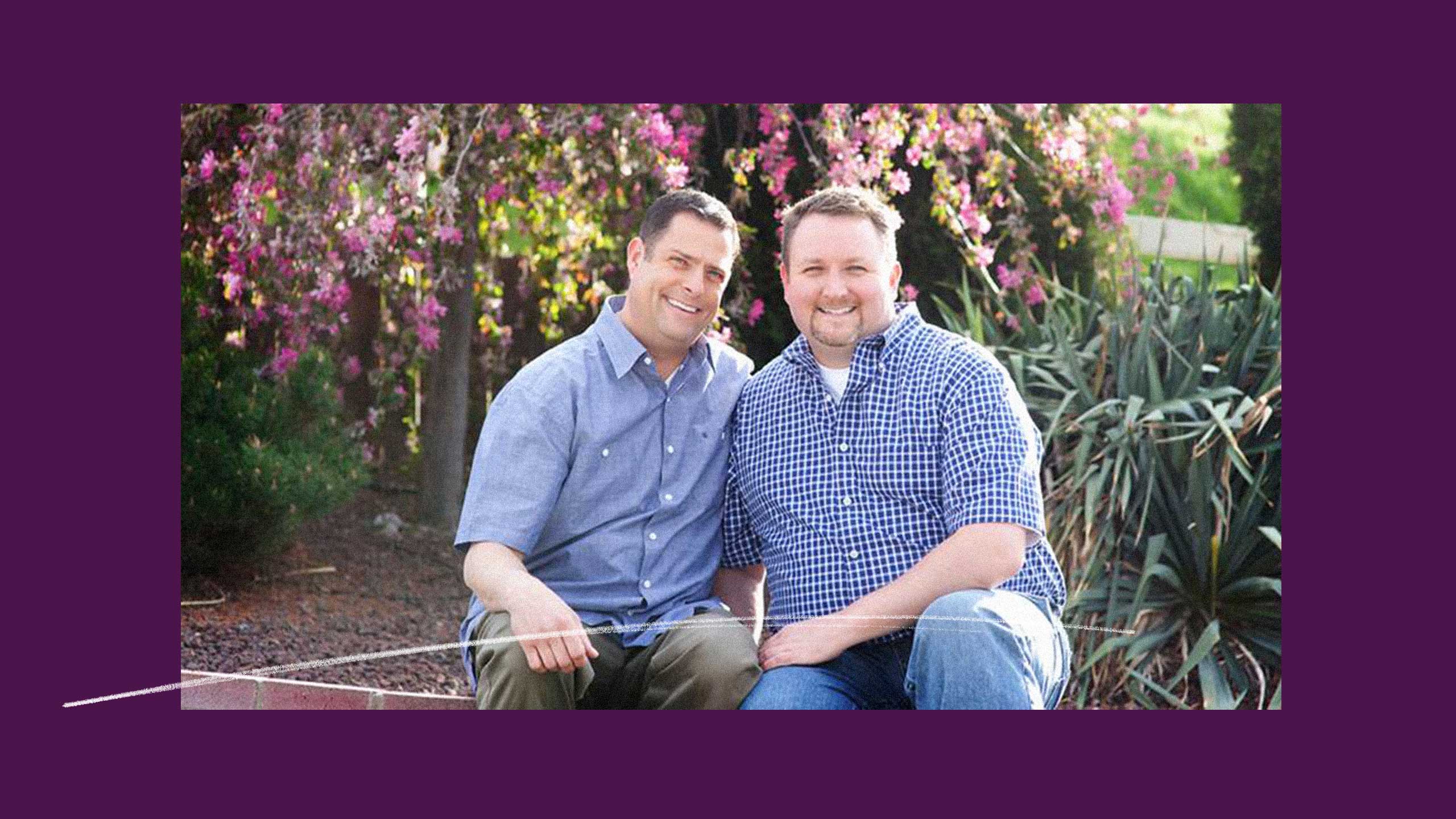A Christian florist has agreed to a settlement with a gay couple whose wedding she refused to cater, bringing eight years of legal battles to a close.
On Nov. 18, florist Barronelle Stutzman announced her plans to drop a Supreme Court appeal in the years-long lawsuit against her, which was brought forth by Robert Ingersoll and Curt Freed after Stutzman turned them away. Following his 2013 engagement to Freed, Ingersoll, a longtime customer of Arlene’s Flowers, approached owner Stutzman about providing flowers for his wedding, but she refused, citing her Southern Baptist faith.
In a statement, Stutzman noted she considered Ingersoll to be a friend and that she’d “always been happy to sell him bouquets of flowers.
“But this time, the special event he was celebrating was his marriage to another man,” she said in a letter shared by the Alliance Defending Freedom (ADF), the Southern Poverty Law Center-designated hate group that defended her in court. “That was a line I could not cross, even for friendship.”
Ingersoll and Freed brought a lawsuit against Stutzman claiming that her refusal to provide them services violated Washington’s nondiscrimination laws, and the couple won a series of court rulings in 2015, 2017 and 2019. In its first of two decisions, the Washington Supreme Court upheld a lower court ruling in the couple’s favour and dismissed Stutzman’s claims that providing them with flowers would amount to endorsing Ingersoll and Freed’s marriage.
“We took on this case because we were worried about the harm being turned away would cause LGBTQ people.”
“As Stutzman acknowledged at deposition, providing flowers for a wedding between Muslims would not necessarily constitute an endorsement of Islam, nor would providing flowers for an atheist couple endorse atheism,” the high court wrote in a unanimous 59-page ruling.
Stutzman subsequently filed her first of two appeals to the Supreme Court which asked the Washington Supreme Court to rehear the case in light of its 2018 ruling in Masterpiece Cakeshop. In a 7–2 verdict, the court ruled that Colorado civil rights commissioners had failed to fairly weigh the faith beliefs of Lakewood bakery owner Jack Phillips when he was fined him for refusing business to Charlie Craig and David Mullins, a same-sex couple planning their wedding.
In 2019, the Washington Supreme Court upheld its earlier decision to dismiss Stutzman’s claims, judging that it had properly considered her Christian faith in its findings. “Discrimination based on same-sex marriage constitutes discrimination on the basis of sexual orientation,” the nine-judge panel concluded.
Although Stutzman once again asked the Supreme Court to intervene, she said last week that she has decided to drop the case and retire.
“I am willing to turn the legal struggle for freedom over to others,” she said. “At age 77, it’s time to retire and give my business to someone else. I’ve never had to compromise my conscience, or go against my faith.”
The American Civil Liberties Union (ACLU), which represented Ingersoll and Freed in court, confirmed that it had settled with Stutzman and her attorneys for a nominal $5,000 in damages. That money will reportedly be donated to a local chapter of PFLAG, a support group for LGBTQ2S+ people and their loved ones.
After the resolution was announced, Freed and Ingersoll said they are “glad the Washington Supreme Court rulings will stay in place to ensure that same-sex couples are protected from discrimination.”
“We took on this case because we were worried about the harm being turned away would cause LGBTQ people,” the couple said. “We are also pleased to support our local PFLAG’s work to support LGBTQ people in the Tri-Cities area. It was painful to be turned away and we are thankful that this long journey for us is finally over.”
But even as this fight reaches its conclusion, others lie ahead. In December, the Supreme Court is set to announce whether it will hear a similar case to Stutzman’s: 303 Creative v. Elenis, in which a Colorado website designer is challenging the constitutionality of the state’s inclusive nondiscrimination laws. Plaintiff Lorie Smith claims the laws force her to “design and publish websites promoting messages that violate her religious beliefs,” according to ADF, which is representing her in court.
Although Smith has argued that she would be compelled to design a same-sex wedding registry under Colorado’s legislation, she doesn’t actually offer such services, according to Newsweek. The 10th Circuit Court of Appeals ruled against Smith earlier this year in a 2-1 decision.


 Why you can trust Xtra
Why you can trust Xtra


